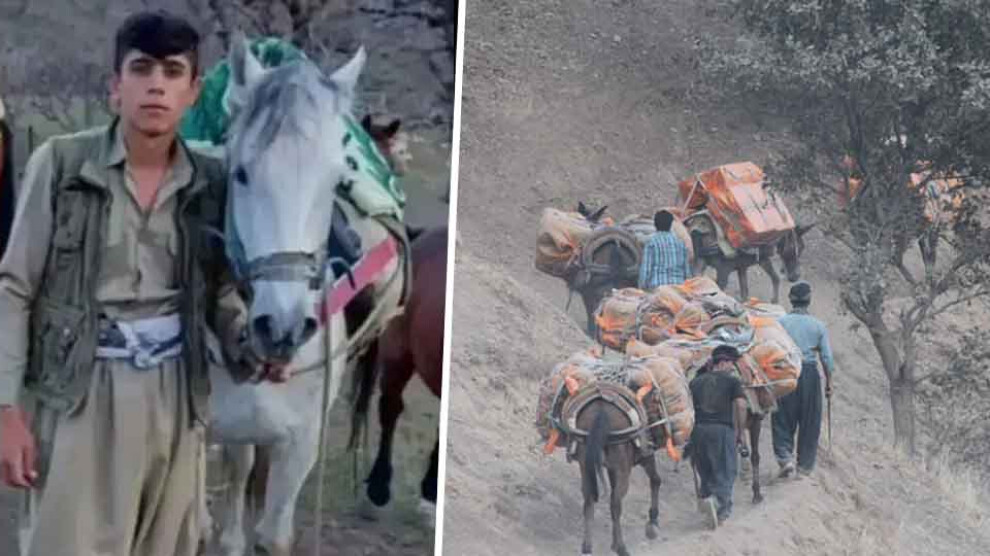One kolbar killed, two others wounded in shooting by Iranian forces
19-year-old Kiyan Zeyni was killed and two brothers, Peyman and Keyvan Ghaderi, were wounded as a result of IRGC shooting.
19-year-old Kiyan Zeyni was killed and two brothers, Peyman and Keyvan Ghaderi, were wounded as a result of IRGC shooting.

The Kurdistan Human Rights Network (KHRN) reported that the Islamic Revolutionary Guard Corps (IRGC) forces today opened fire on a group of kolbars in the mountainous Qandil region of Sardasht, West Azerbaijan Province. The shooting killed 19-year-old Kiyan Zeyni and wounded two brothers, Peyman and Keyvan Ghaderi.
IRGC forces stationed at the Kotarleh military base in Sardasht opened fire on the group at close range and without warning, according to KHRN. Zeyni was a resident of Rasheh Hormeh village in Sardasht.
According to the latest balance sheet published by Kolbarnews, 270 kolbars, 20 of whom were under the age of 18, lost their lives or were injured as a result of attacks in different border regions of Eastern Kurdistan in the first six months of 2024.
Eastern Kurdistan has descended deeper into poverty through the years due to deliberate policies by the Iranian regime and stands out as one of the poorest regions in Iran. Compared to other regions, the area has seen significantly less investment and development has been deliberately curbed. Agriculture and industry weren’t allowed to develop, and as a result, unemployment rose to the highest in Iran.
Faced with policies of discrimination, oppression and impoverishment, carrying smuggled goods is not a choice but a must for survival.
Kolbar comes from the Kurdish words, “kol” (back) and “bar” (load). Kolbars make their living carrying loads along the perilous borderline. Their loads include cigarettes, mobile phones, clothes, housewares, tea and seldomly alcohol. They walk through dangerous terrain to continue this trade between Southern and Eastern Kurdistan. The goods they bring are sold at high prices in Tehran, but the kolbars who risk their lives for them are paid very modestly.
The intermediaries who take the deliveries and find buyers in cities are called kasibkars. Kolbars and kasibkars range from 13 to 70 years old. Some only finished elementary school, while others are university graduates. They carry loads, because they can’t find any other employment.